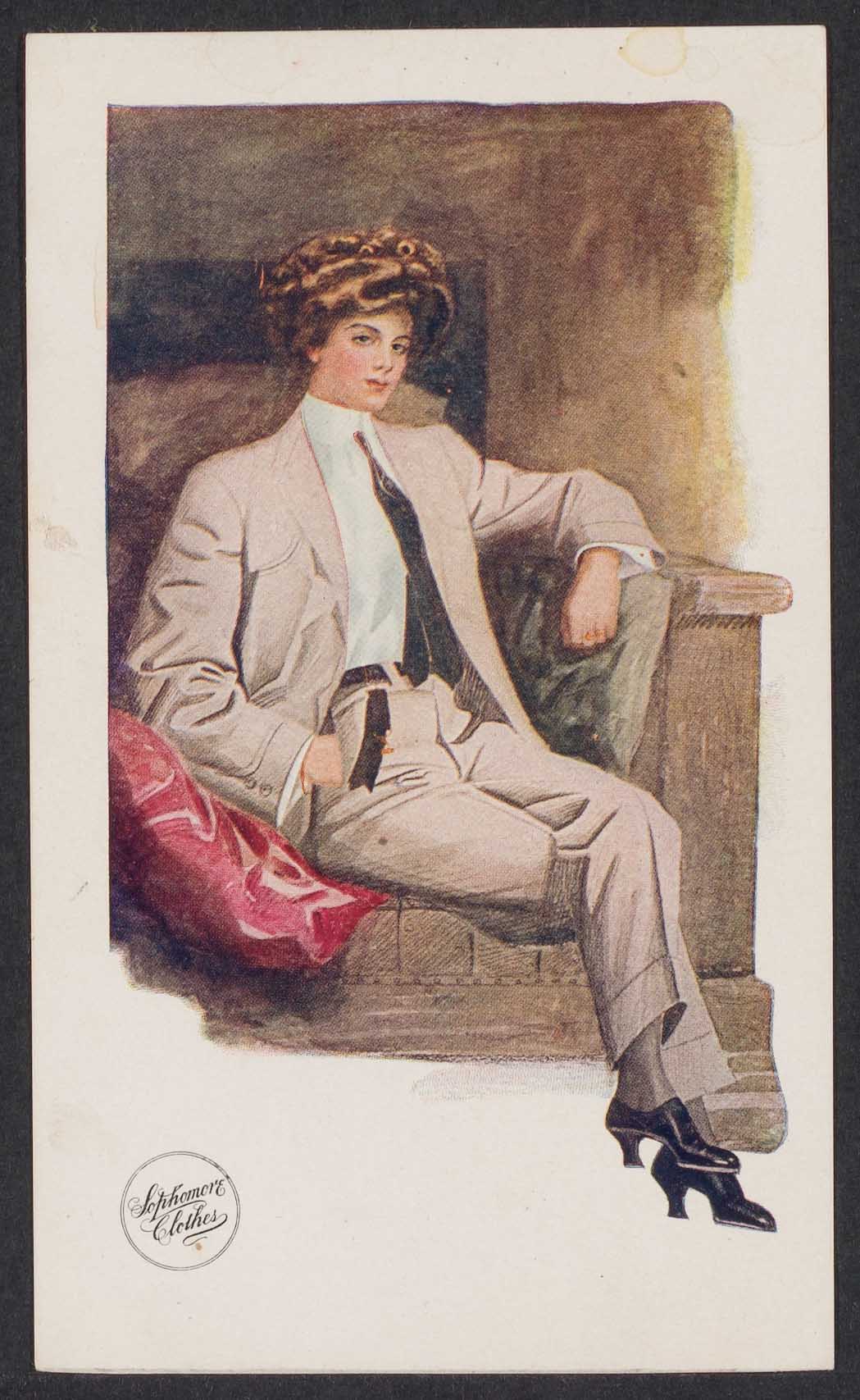Feminism
Feminism is a term that has shifted in meaning throughout history. During the first wave of feminism in the late-nineteenth century feminist focus fell upon challenging traditional gender roles and legal inequalities. Throughout Gender: Identity and Social Change the papers of various feminist activists from this period can be found, including Jane Norman Smith who argued and lobbied repeatedly on behalf of the National Woman’s Party for the revision of U.S labour laws during this time (see, Statement of the National Woman's Party supporting Francis Perkins). Likewise, the Judicial Committee of the Privy Council, "Persons Case" judgement highlights the victory of Henrietta Muir Edwards getting women recognised as ‘persons’ in law.
challenging traditional gender roles and legal inequalities. Throughout Gender: Identity and Social Change the papers of various feminist activists from this period can be found, including Jane Norman Smith who argued and lobbied repeatedly on behalf of the National Woman’s Party for the revision of U.S labour laws during this time (see, Statement of the National Woman's Party supporting Francis Perkins). Likewise, the Judicial Committee of the Privy Council, "Persons Case" judgement highlights the victory of Henrietta Muir Edwards getting women recognised as ‘persons’ in law.
The second wave of feminism that emerged in the late 1960’s saw feminists turn their focus towards tackling women’s employment and education rights. Papers of the Business and Professional Women’s Clubs offer a wealth of material tracing their campaigns for equal training and occupational opportunities for Canadian women. Rheta Childe Dorr’s 1912 Breaking into the Human Race similarly highlights the institutional injustices suffered by women “whatever her intellectual qualifications”, whilst Martha Carey Thomas’s The New Pedagogy and Education of Women, with speeches on the same topic argues that equal working opportunities for women would be reliant upon equal education.
Throughout this resource, many documents have been tagged with keywords such as ‘radical feminism’, ‘liberal feminism’ and ‘socialist feminism’ to best capture which area the individual authors identify. For instance, ‘radical feminism’ was embraced by The New York Radical Feminists, whose prime aim of Consciousness Raising is defined as making “us aware of the societal pressures that oppress women”. Alternatively, Ti-Grace Atkinson offers “a pragmatic analysis” of the term “Radical Feminism” and related “military terminology” such as “battle of the sexes” in Feminist theory. ‘Socialist Feminism’ is another common term which appears throughout the resource, with Documents relating to the creation and operation of unions for Women and The relationship between feminism and socialism discussing women’s union agendas and the topic of Socialist and Marxist feminism respectively. Alternatively, the Calgary Women's Liberal Club material and papers of the Six Point Group record the constitutions, minutes, and correspondence of liberal feminist groups.
The letters and business records of many men’s and women’s groups who aligned themselves more widely as “pro-women and pro-feminist” can also be discovered in the resource. White Ribbon Campaign groups, for instance, were founded to raise awareness of male violence against women and “re-defining relations between men and women” (see, Male Exchange, 1992-1999). Wider feminist issues are also the focus of the feminist periodical the Vashti Collective. Likewise, the Changing Men Collection explores wide-ranging feminist issues (see, the California Anti-Sexist Men’s Political Caucus and The Listening Man).
![[African National Congress 1984 Year of the Women]](/ContributeData/GenderIdentity/Views/Introduction/ThematicAreas/Feminism2newnew.jpg) Feminist events and protests may also be discovered within documents such as the Calgary Status of Women Action Committee Minutes, 1978 which records preparations for International Women's Day that year, and the Manitoba Festival of Feminism. A series of posters promoting International Women’s Day rallies and marches may also be found within the University of Melbourne’s Poster Collection. Alternatively, Newspaper clippings relating to the Alberta Advisory Council on Women's Affairs… refer to the group’s celebration of equality provisions made in the Canadian Charter of Rights and Freedoms. Documents relating to the status of African American women in the United States also provides an insight into events organised by Hear Us Emerging Sisters and The National Black Women’s Health Project. For comparative material, see African National Congress 1984 Year of the Women and Aboriginal Women's Arts Festival.
Feminist events and protests may also be discovered within documents such as the Calgary Status of Women Action Committee Minutes, 1978 which records preparations for International Women's Day that year, and the Manitoba Festival of Feminism. A series of posters promoting International Women’s Day rallies and marches may also be found within the University of Melbourne’s Poster Collection. Alternatively, Newspaper clippings relating to the Alberta Advisory Council on Women's Affairs… refer to the group’s celebration of equality provisions made in the Canadian Charter of Rights and Freedoms. Documents relating to the status of African American women in the United States also provides an insight into events organised by Hear Us Emerging Sisters and The National Black Women’s Health Project. For comparative material, see African National Congress 1984 Year of the Women and Aboriginal Women's Arts Festival.
Various articles and correspondence in the resource also convey strong anti-feminist viewpoints, often dubbing feminist campaigns “an injustice to men” (see, The M.E.R.G.E. Newsletter). Women were often the authors of anti-feminist works as demonstrated in much of the correspondence sent to Betty Freidan following the publication of her pivotal work The Feminine Mystique. Whilst some women praised the text as “the most important book of our century” others condemned it as “Pish-posh, Balderdash and hog-wash!”. Friedan’s earlier article, The Fraud of Femininity, attracted similar responses after she provocatively compared suburban homes to concentration camps.
For further exploration of feminist issues and groups, the [Bibliographies of feminist publications] is a great place to start.


